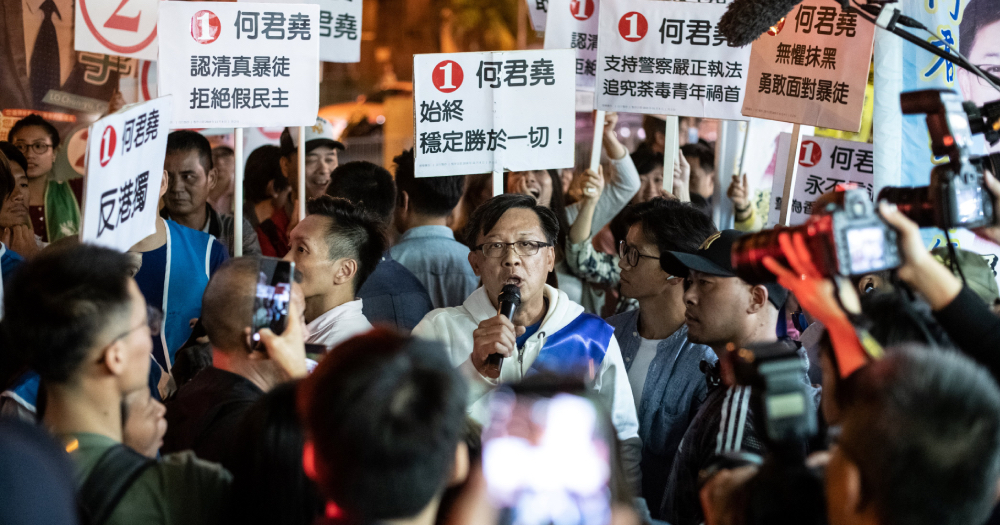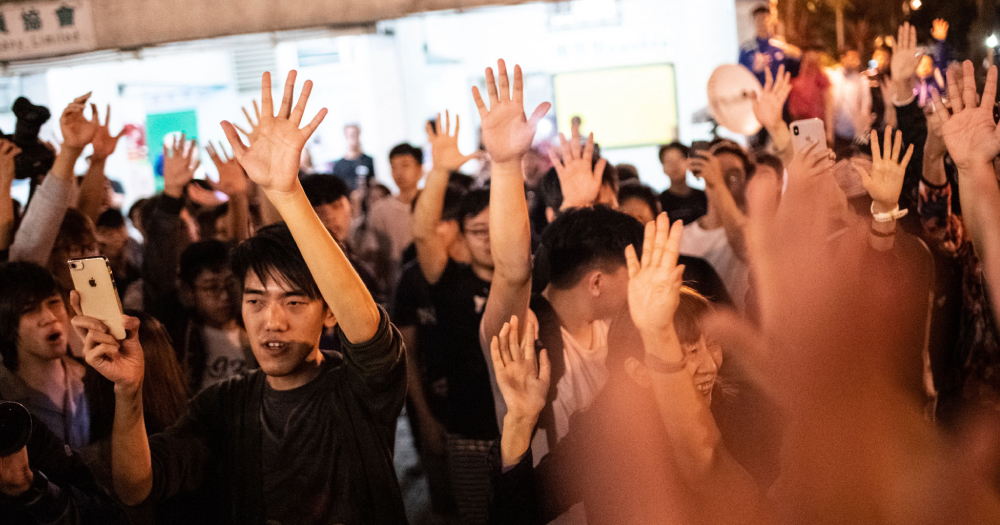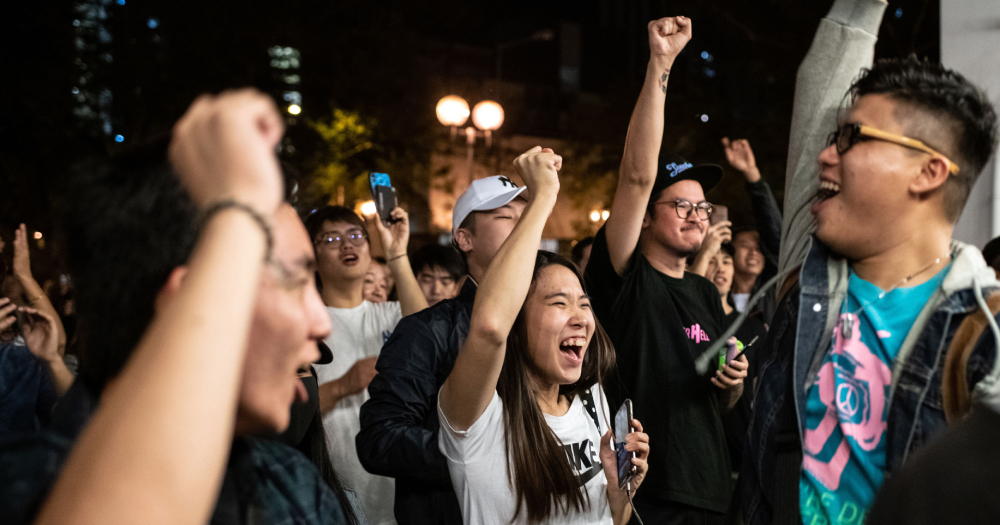The Hong Kong district council elections held on Nov. 24 saw pro-democracy candidates sweeping up 333 out of 452 seats by Nov. 25, 8:00am.
By 9:00am, South China Morning Post (SCMP) confirmed that the pro-democracy camp had won 17 out of 18 district councils, all of which were previously under pro-establishment control.
Pro-Beijing campaigners reeling in defeat
While votes are still being counted, pro-establishment candidates, according to Financial Times (FT), have only won 42 seats at the time of writing.
Independent candidates, who are endorsed by neither camp, have taken 24 seats in the district council.
A number of pro-Beijing heavyweights including Junius Ho, who came under fire from protesters due to his abrasive public comments, lost to pro-democracy challenger Cary Lo Chun-yu.
 Photo by PHILIP FONG/AFP via Getty Images
Photo by PHILIP FONG/AFP via Getty Images
Ho described it on Facebook as “an exceptional election, and an unusual result”.
Record-breaking election
The elections on Sunday saw a record 2.9 million people turning up to vote, with 71.2 per cent of eligible voters across all territory-wide elections.
All seats were contested for the first time in Hong Kong's history.
FT called Hong Kong's district council elections the most "democratic and representative elections in the territory".
However, it also mentioned that councillors held little political power, with past campaigns typically focusing on minor local issues, such as noise pollution.
Young, first-time voters key in elections
“This is the power of democracy. This is a democratic tsunami,” said Tommy Cheung, a former student protest leader who won a seat in the Yuen Long district close to China’s border, Reuters reported.
Ousted pro-establishment campaigners suggested that the wave of young, first-time voters had been instrumental in their defeat.
 Pro-democracy supporters celebrate after pro-Beijing candidate Junius Ho lost a seat in the district council elections. Photo by PHILIP FONG/AFP via Getty Images
Pro-democracy supporters celebrate after pro-Beijing candidate Junius Ho lost a seat in the district council elections. Photo by PHILIP FONG/AFP via Getty Images
Pro-establishment lawmaker Michael Tien lost his seat to pro-democracy candidate Lau Cheuk-yu.
“I respect the electorate’s decision,” Tien told SCMP.
The politician, known for his outspoken ways and dubbed the bad boy of the pro-Beijing camp, suspected he lost out because of first-time voters.
“If that’s true, it means young people are no longer insensitive to politics,” Tien said, adding the government would need to listen to the voice of young people.
Six months into Hong Kong protests
The Hong Kong protests, which begun in June 2019 over the now-withdrawn extradition bill, have evolved into calls for full democracy for the territory.
The large-scale protests, which have seen violent clashes between protesters and the police, has been arguably the biggest challenge faced by Chief Executive Carrie Lam since she came to power.
Top image via PHILIP FONG/AFP via Getty Images
If you like what you read, follow us on Facebook, Instagram, Twitter and Telegram to get the latest updates.
